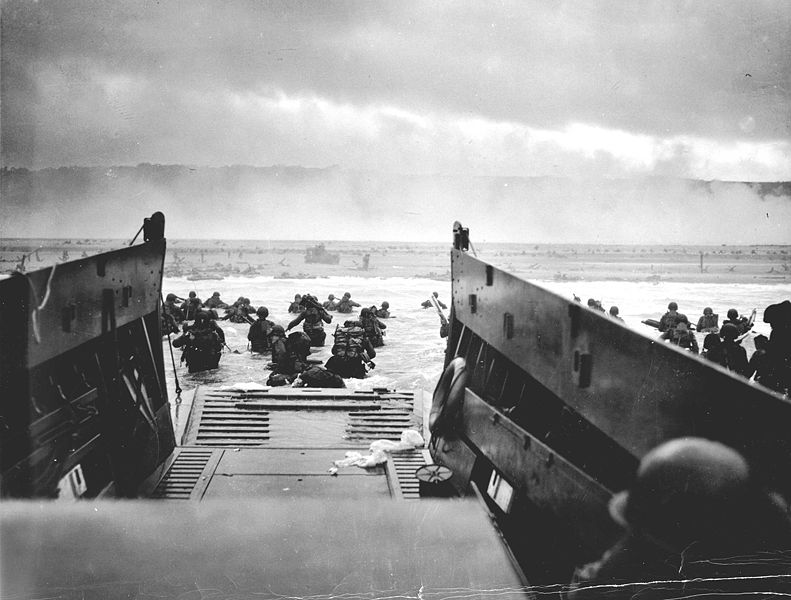It is difficult to think of the Normandy invasion as having taken place 66 years ago today. Today, a young soldier who hit that beach as an 18-year-old kid is 84 years old. His second lieutenant division officer is now 88 years of age. Any of the older non-comms and those who held higher rank are now pushing the age limits.
Many of those young men, who survived the war, are leaving this world today at an alarming rate.
The invasion started this morning at 0630 GMT+2. Some 175,000 men comprised the Allied invasion force that came ashore by landing craft as well as by parachute. A young warrior entering into the fray either way faced dangerous odds.
For the soldier who went into the invasion on a landing craft, they had to step off into water that was up to their shoulders, if not over their heads. Wearing all of their gear and carrying heavy equipment such as their weapons and ammunition, many found themselves slipping to the sandy bottom. That was, if they were lucky enough to make it that far.
German machine gun rounds often starting hitting the men as they stood in the LSTs when the ramps came down. The German fire killed and wounded many on the spot, before they ever had the chance to take the first step into the war and start fighting.
For the paratroopers of the 101st and the 82nd, it was similarly dangerous. The 101st was to parachute into the area around Vierville in support of the Utah Beach landing, while the planners intended for the 82nd to protect the right flank following insertion into the area surrounding Sainte-Mère-Église. Some pilots made the mistake of flying too low to avoid the anti-aircraft fire; some of the men parachuted into the darkness from too low an altitude. A few landed in marshes and, burdened with all of their fighting gear, weapons, and parachutes, ended up drowning on landing.
For the survivors, after situating themselves on the Normandy coast or in the countryside behind the beaches, the fighting was just beginning. Now it was a fight against the enemy as well as to survive.
The individual stories of the fighting and survival are amazing. If you have not heard the stories, listened to the oral histories, read the accounts, it is all worth the effort.
We, who value our freedoms today, owe an enormous debt of gratitude to those men who stormed the beach, parachuted down behind the lines, flew overhead, or plied the seas. Those who lived as young people in the mid-1940s, quite literally, were the generation who saved the world. If not for their sacrifices, none of the generations that followed would have been.
Today, approximately 740 World War II vets pass each day. As they make the final muster, we who remain behind, are a little poorer for their passing.
But we are so much richer for their having lived on this earth.
-30-
© 2011 J. Clark


